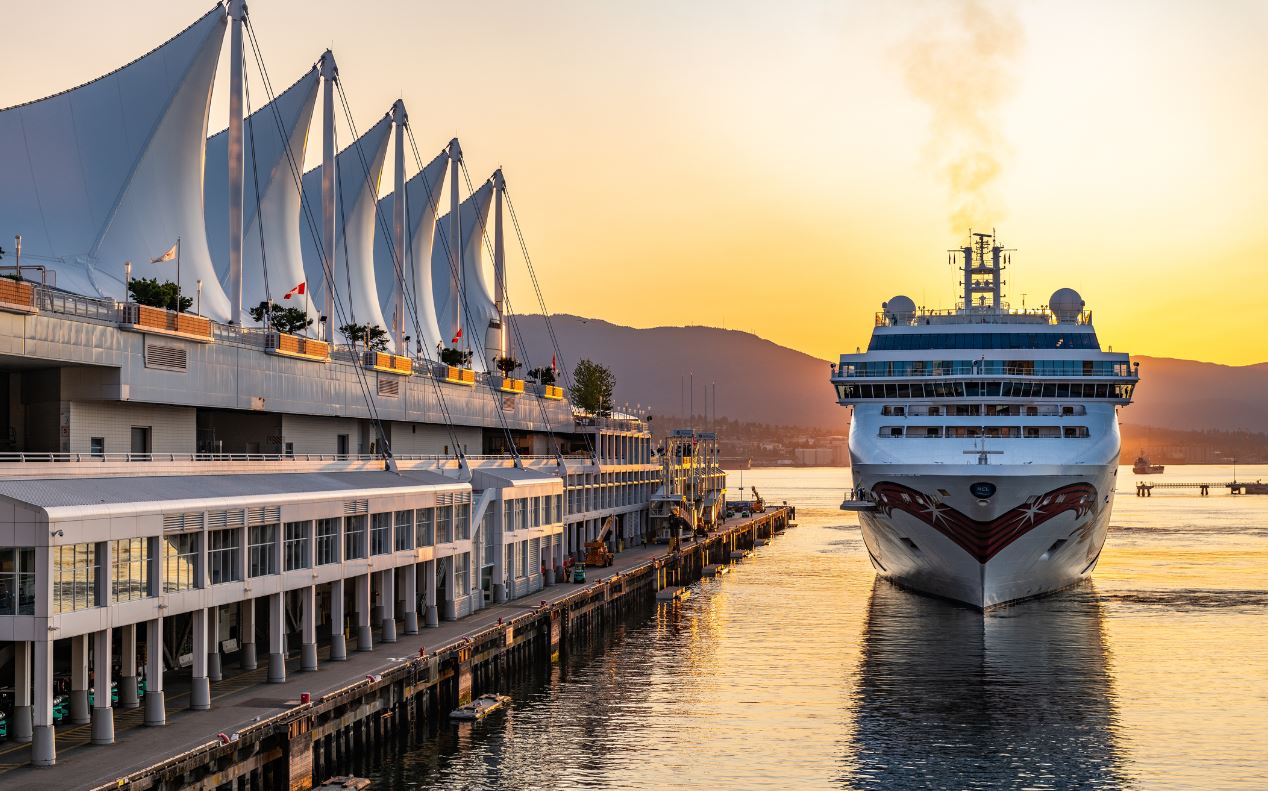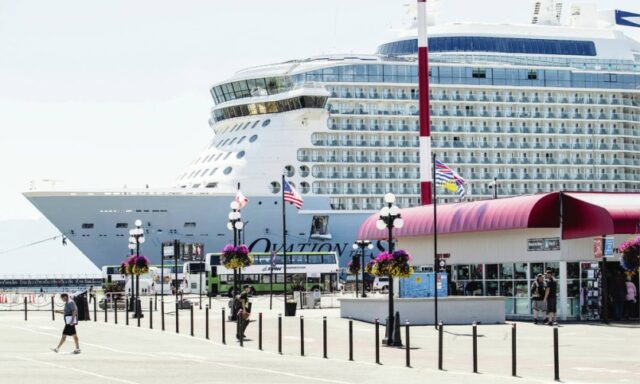If you’ve ever been on a cruise, you know that Canada can be a pain to deal with. Sure, there is a lot of beautiful scenery but the weather can be especially fickle. The day you want to visit the Great White North is usually the same as the day the seas get all choppy. And of course, you are stuck with the queue in Canada because they have strict border controls.
The U.S. and Canada have long been in a trade war over their respective duties, but so far the two have managed to prevent their relationship from fraying. However, a newly introduced bill has been introduced in the U.S. House of Representatives that would allow U.S.-flagged cruise ships to bypass Canada’s 18 percent tariff on cruise ships, which would negate a $100 million impact on Canada’s economy. The U.S. currently has no immigration or customs laws for cruise ships, but by allowing U.S. ships to bypass Canada, the bill would allow the U.S. the ability to simply set up a border patrol.
A new bill proposed in the United States Congress, and supported by the cruise industry, would allow U.S. cruise ships to use Canadian ports on a permanent basis. The bill gives the U.S. Department of Transportation the authority to waive any customs, taxes, or fees that Canada may impose on foreign vessels for use of its ports, a move which has drawn criticism from the Canadian government and from grassroots groups campaigning for the preservation of Canada’s national sovereignty.
Canada’s cautious approach to cruises during a pandemic could have long-term negative consequences for an industry that is worth an estimated $4.2 billion annually.
Early last year, our northern neighbor banned large cruise ships from entering its ports until the 28th. February 2023 banned. The wording left some wiggle room, and the government said: If the COVID-19 pandemic situation improves such that these activities can be resumed, the Secretary of Transportation has the option of lifting the temporary orders.
But while the number of cases and hospitalizations associated with COVID-19 has improved dramatically and nearly 75% of the adult population in Canada is now vaccinated with the first dose, there is no indication that the order will be lifted.

(Photo courtesy of Royal Caribbean)
A shortened Alaska cruise season from Seattle in 2023 is in the works, thanks to a temporary exemption in a U.S. law that requires foreign-flagged ships – nearly all major cruise ships fall into that category – to stop in a foreign port when traveling between U.S. ports.
Some say 135 years of legislation is the only reason the cruise industry exists in B.C. and has been able to grow to the point where by 2019, the Port of Vancouver will receive more than a million cruise ship visitors and the Port of Victoria about 800,000.
ANALYSIS: Florida lawsuit against CDC, Governor DeSantis’ first win for cruises
Now U.S. Senator Mike Lee, from the landlocked state of Utah, has introduced a bill that would, among other things, permanently repeal the Passenger Vessel Services Act (PVSA) and remove the requirement to stop in Canada.
PVSA is not America First, Lee told the Senate last month. It is the embodiment of special importance above all else. Or, one might say, Canada above all else. The only reason Canada has so much power over us is because of our own laws.

Victoria, British Columbia (Photo courtesy of Pixabay/MontseSB).
Do ships stop in Canada when they are not needed?
For the approximately 29,000 Canadians who depend on the cruise industry and for cruise fans who enjoy the stops in Vancouver and Victoria, the question is whether cruise ships will continue to stop there when they don’t have to.
B.C. Premier John Horgan says he believes in it.
I am sure Canada is doing a good job in this regard. The relationship between (U.S. President Joe Biden and Prime Minister Justin Trudeau) is strong, Horgan said.
We have good relationships in the South, in Washington, Oregon and California, and now a burgeoning relationship with Alaska, Horgan said. I know that the cruise industry highly values Victoria, Vancouver and Prince Rupert as destinations for travellers from around the world.
Mr. Horgan noted that cruise ships traveling from Seattle to Alaska must pass through British Columbia. Why don’t they stop? He told reporters recently. That’s part of the appeal. This makes cruises an important part of international tourism.
READ MORE: Holland America provides details on re-launch of six ships in fall 2023
The politician has a good point. Vancouver is a dynamic and prosperous city, set in an exceptional natural environment. Passengers can get off at Canada Place and find themselves in the heart of the city’s diverse life. Victoria, on Vancouver Island, is also a popular stop for cruises. Many British-themed attractions are a short commute or walk from the cruise pier.
Even without PVSA, cruise ships will dock in B.C., if only for its appeal to visitors. The big question is how much.

Canada’s cruise ban hinders industry recovery
The Greater Victoria Port Authority, which has been hit hard by cruise ship closures, recently asked the federal government to withdraw its council decision to ban cruise ships from Canadian waters. There is a risk that the temporary legislation could become permanent and devastate B.C.’s $2.7 billion cruise industry, the organization said in a statement.
While cruise tourism in the United States, Europe and elsewhere is clearly on the road to recovery, the industry’s recovery is increasingly hampered by Canada’s blanket ban on ships carrying more than 100 people – regardless of the vaccination status of passengers.
The cruise ban didn’t just affect the West Coast, even though British Columbia derives nearly 70% of its revenue from cruises in Canada. The number of cruises to Canada and New England has increased dramatically in recent years. Each year, the ships carry 1.3 million passengers to eastern Canadian ports, including Halifax and Montreal.
Cruises to Canada and New England were not included in the legislation exempting Alaska from the PVSA. So unless the Canadian government lifts its ban, cruise revenues will be wiped out for the second year in a row.In a move that could have far-reaching implications for the U.S. cruise industry, the U.S. House of Representatives has passed a bill that would allow passenger ships to permanently bypass Canada when sailing through the Great Lakes. U.S. Representative Peter DeFazio of Oregon, who introduced the legislation, reportedly said: ‘“The perception is that cruise ships sail up and down the St. Lawrence Seaway so they can avoid Canada…This legislation makes it clear that this will not be the case.”. Read more about mike lee and let us know what you think.
Frequently Asked Questions

Is Canada allowing cruise ships?
As opposed to many places in the world, Canada is not a very welcoming place for cruise ships. Under existing maritime laws, cruise ships must spend seven days in a Canadian port if they want to enter Canadian waters. However, these laws will soon be changed. (Many of the details are still being worked out as the government works on a new bill, which is expected to be introduced later this fall.) Cruise ships have been coming to Canada in increasing numbers in recent years, but it would seem that the Canadian government is taking steps to prevent the practice. A U.S. cruise ship, the Adonia , was denied entry into Canada by the Canadian Border Services Agency last month, after it sailed through the St. Lawrence Seaway.
Has Canada closed its ports to cruise ships?
There are plenty of Canadians who love cruising to exotic ports of call and get to see new countries and cultures. So, why have Canada not been welcoming cruise ships since 1983? The Canadian government is considering a new bill that would allow US cruise ships to permanently bypass the country, in order to bypass Canadian tariffs and other restrictions. This would be a big win for American cruise line operators and the tourism industry, that would hugely boost their business. But as a Canadian, I don’t like this idea. I don’t like it because it will impact the cruise industry in Canada, and it will have a negative impact on the Canadian economy.
What laws apply to cruise ships?
The governments of Canada and the United States have been at odds over the years about which country has the right to maintain control of waters within the 200 mile exclusive economic zone. At the heart of the dispute lies the question of sovereign rights and jurisdiction—the right of one country to govern its own waters, and the right of the other country to govern its own waters. Various legal documents have been written about the issue, but nobody has ever been able to reach a definitive agreement to settle the dispute. The Border Security, Economic Opportunity, and Immigration Modernization Act (HR 1625) has been drawing a lot of attention this week, mostly because of a provision that would allow US-flagged cruise ships to sail across the Atlantic without having to stop in Canada. Is this a big deal?




